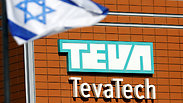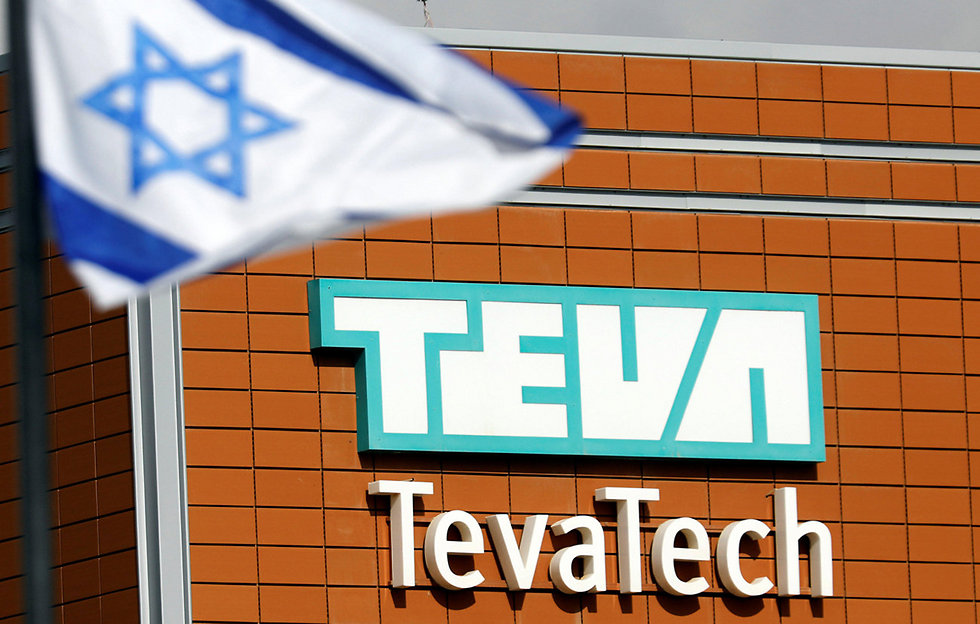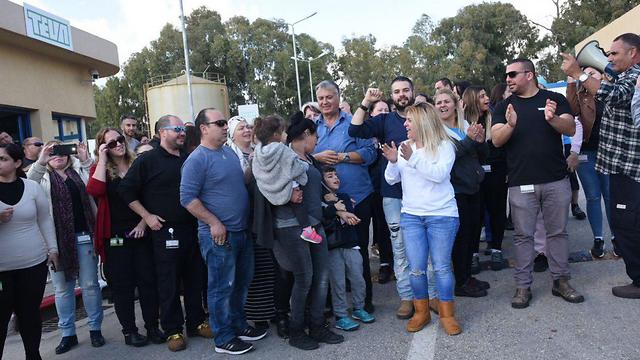
Teva Pharm to lay off a quarter of workforce
In effort to pay back massive $35 billion debt, the Israel-based Teva Pharmaceutical Industries plans to cut 14,000 positions globally, including in Israel.
Teva Pharmaceutical Industries plans to reduce its workforce by 25 percent and suspend its dividend on ordinary shares in a much-anticipated overhaul to help pay back its massive debt.
Israel-based Teva, the world’s largest generic drugmaker, said on Thursday these measures will result in the reduction of 14,000 positions globally, with the majority of the cuts expected in 2018.
Teva has roughly 7,000 Israeli employees, making it one of the country's largest private sector employers. Israel’s Histadrut Labor Federation said at least 1,750 employees will be laid off in Israel, with 1,250 laid off by the end of 2018 and an additional 500 laid off from factories Teva intends to sell. The employees affected by the cutbacks are expected to receive notice within 90 days.
Economy and Industry Minister Eli Cohen said Teva has committed not to cut employees in Israel's periphery—in the Negev and Galilee regions. "We will continue working in conjunction with the company to reduce the layoffs in the rest of the areas," he said.
The two-year restructuring plan is intended to reduce Teva’s total cost base by $3 billion by the end of 2019, out of an estimated cost base for 2017 of $16.1 billion.
The Histadrut Labor Federation has threatened to hold a half-day general strike on Sunday, the start of the Israeli work week, in protest at the layoffs.
In a letter to employees, Chief Executive Kare Schultz said the restructuring is "crucial to restoring our financial security and stabilizing our business."
"We have no time to waste," he said. "We are flattening our organization both top down and sideways, with fewer layers of management and increased accountability. This will ensure better integration, improve productivity and efficiencies, and reduce our cost base."
Teva's stock has skidded nearly 60 percent this year.
Schultz said the restructuring would include changes in the generics portfolio, both through price adjustments and product discontinuation. He said a "significant number" of research and development facilities would be closed or divested, and there will be a "thorough review" to prioritize core projects, cancel others and maintain a pipeline of new products. Teva, for instance, recently began marketing a generic version of the blockbuster drug Viagra.
Annual bonuses for 2017 also will not be paid.
Schultz's letter said the layoffs would affect all businesses and regions for a company that employs some 56,000 people worldwide.
"Making workforce reductions of this magnitude is difficult, and we do not take them lightly," Schultz said. "However, there is no alternative to these drastic steps in the current situation."
Schultz said the company will be "respectful and transparent" and work closely with employee representatives and unions.
Ahead of the announcement of the new measures, Prime Minister Benjamin Netanyahu spoke with the chief executive of Teva CEO Kare Schultz to keep layoffs in Israel to a minimum and to “maintain the identity of Teva as an Israeli company,” which Schultz promised to do.
Finance Minister Moshe Kahlon said only that he was following the situation closely.
Teva's bottom line has been hit by the expiration of patents on Copaxone, its flagship drug for multiple sclerosis; pricing pressure on its core generics business; and a $35 billion debt load taken on in its acquisition of the generics business of Allergan. It also has suffered from turnover and instability in its senior management ranks.
Last week Bloomberg reported that the firm was considering cutting up to 10,000 jobs to reduce costs by $1.5 billion to $2 billion in the next two years.
Teva said on Tuesday that Yitzhak Peterburg, who previously served as its chairman and interim CEO, had resigned from its board with immediate effect.
Schultz ousted top division heads last month and said he would combine the firm’s generic and specialty drug businesses. He had also said Teva was working on a detailed restructuring plan to be unveiled in mid-December.
Tzachi Sadeh, Reut Rimmerman and Ahiya Raved contributed to this story.













